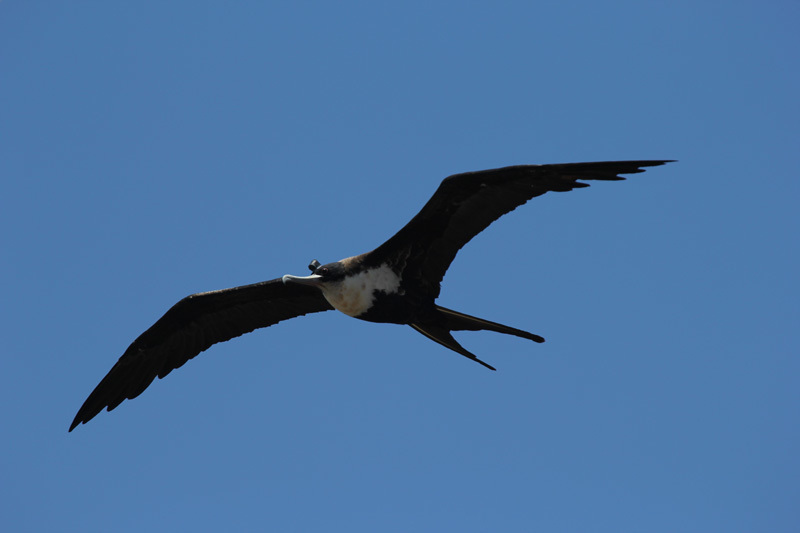 Frigatebirds recorded sleeping while flyingB. Voirin
Frigatebirds recorded sleeping while flyingB. VoirinMany species of bird fly non-stop for days, weeks and months. What they do to sleep during this time was not however known. Previously, mallard ducks have been recorded sleeping with one brain hemisphere at a time – meaning one side stayed awake on the lookout for danger. Some scientists have suggested this is how they manage to maintain flight without falling from the sky.
Another suggestion is that they do not sleep at all. Male pectoral sandpipers that are competing for a mate can perform for several weeks on little to no sleep.
Researchers attached GPS and ECG monitors to nesting female frigatebirds in order to look for changes in brain activity during flight. These large seabirds spend weeks flying over the ocean in search of prey. Over their 10-day 3,000km foraging flights, the recorders tracked their position, altitude and sleep status.
Findings, published in Nature Communications, showed the birds spent most of the daytime awake looking for food. At night, however, their brain activity switched to a SWS pattern for several minutes at a time. This took place either in one hemisphere of the brain, or both at the same time.
This, the researchers say, shows birds do not need to keep one side of their brain active in order to maintain flight. Sleep with both hemispheres was more common on land, however, suggesting they preferred to keep an eye on where they were going, to avoid collisions. Birds were also recorded for REM sleep for a few seconds at a time, during which their heads dropped but the flight path remained unchanged.
On average, frigatebirds slept for 42 minutes per day. When back on land they slept for 12 hours per day. The reason they can survive on so much less sleep while at sea is not known. "Why they sleep so little in flight, even at night when they rarely forage, remains unclear", study author Niels Rattenborg said. "Why we, and many other animals, suffer dramatically from sleep loss whereas some birds are able to perform adaptively on far less sleep remains a mystery."
0 Response to "Birds recorded sleeping while flying for the first time"
Post a Comment